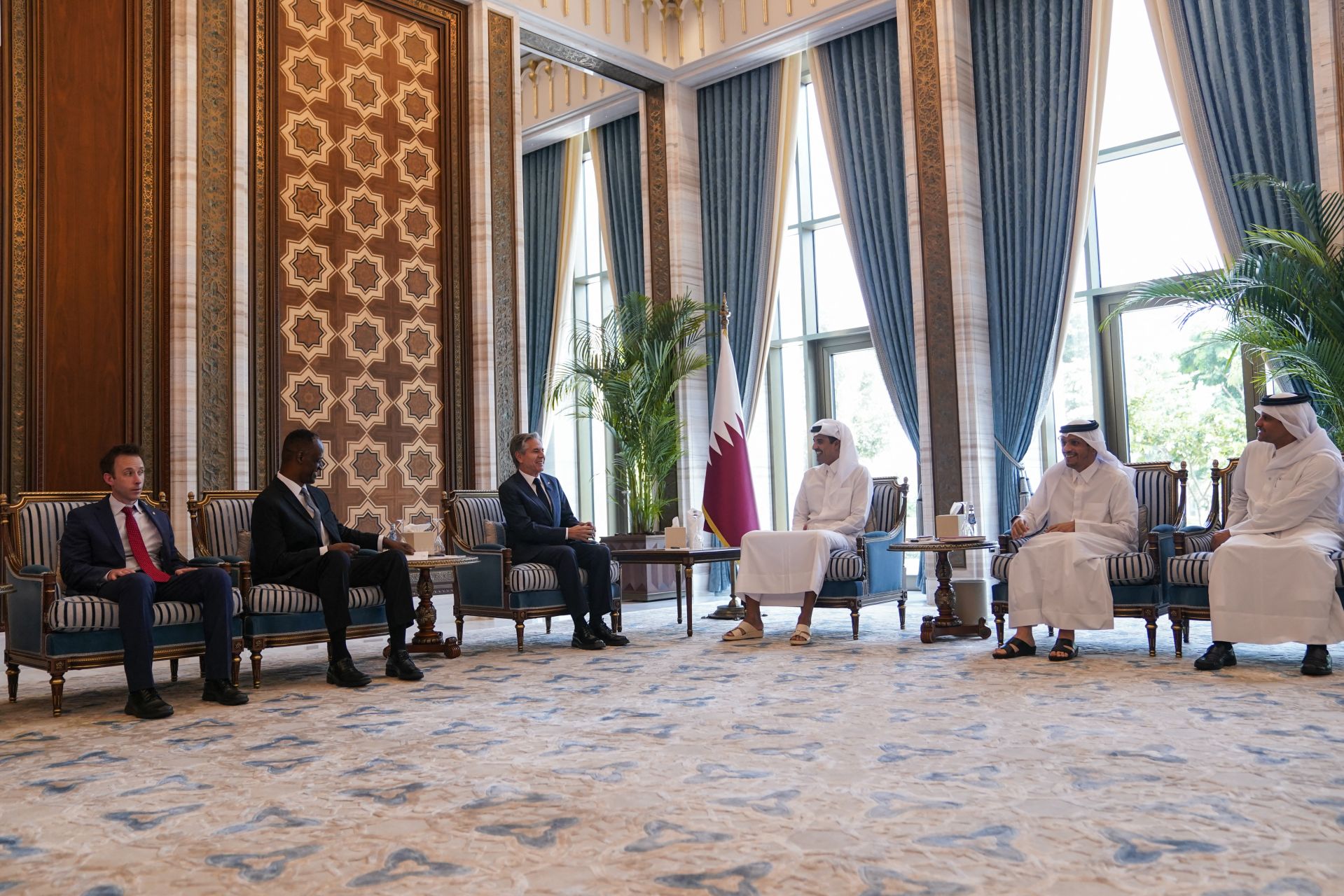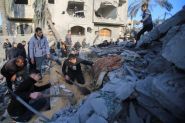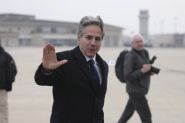- Home
- Middle East
- Gaza: Israel Sends Negotiators to Doha, Hamas Open to Conditional Ceasefire

US Secretary of State Antony Blinken (C-L) meets with Qatar's Emir Tamim bin Hamad Al-Thani (C-R) in Doha on October 24, 2024.
Israel announced on Thursday that it would dispatch a delegation to Qatar to negotiate a deal concerning Gaza that involves the release of hostages, while Hamas stated it was open to discussions on a ceasefire in the Palestinian territory devastated by over a year of war.
The latest indirect negotiations, facilitated by mediators—Qatar, Egypt, and the United States—aimed at achieving a ceasefire in Gaza alongside a hostage release, occurred in August and ended in failure, similar to many previous attempts.
These new negotiations come following the death of Hamas leader Yahya Sinwar, who was killed by Israel on October 16 in southern Gaza, as Israel faces growing pressure to end its conflict with Hamas in Gaza and Hezbollah in Lebanon.
Hamas "has shown a willingness to halt hostilities" but has demanded from Israel a "commitment to a ceasefire," a "withdrawal from the Gaza Strip," and a "serious agreement for an exchange" of Israeli hostages abducted on October 7 and held in Gaza in return for Palestinian prisoners detained by Israel, according to a Hamas official.
These conditions, which were presented during earlier indirect negotiations, had been rejected by Israel.
Following discussions in Cairo between Egyptian officials and a Hamas delegation, Israeli Prime Minister Benjamin Netanyahu is set to send David Barnea, head of the Mossad (Israel's external intelligence agency), to Qatar, according to his office.
Barnea is scheduled to meet on Sunday with CIA Director Bill Burns and the Qatari Prime Minister to discuss "various options for advancing the negotiations for the release of the hostages," as stated by the same source.
The Mossad chief has already met with senior Egyptian officials as part of efforts to "resume negotiations and establish a ceasefire," as reported by Al Qahera News, which is close to Egyptian intelligence.
Returning from his 11th tour of the Middle East, US Secretary of State Antony Blinken is set to meet with Lebanese Prime Minister Najib Mikati on Friday in London, where he arrived on Thursday evening. During his tour, he emphasized the need to spare Lebanese civilians but did not call for an immediate ceasefire from Israel.
With AFP.
Read more



Comments